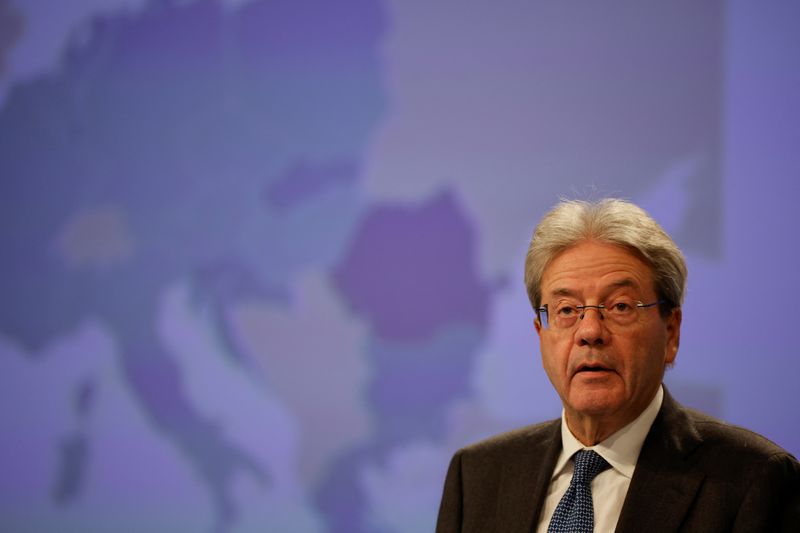By Huw Jones
LONDON (Reuters) - The European Union cannot afford to be "behind the curve" in moves by central banks to issue digital versions of their currency, a top EU official said on Wednesday.
The euro is the world's second most traded currency, European Commission Vice President Valdis Dombrovskis told a news conference to propose a legal underpinning for a retail digital euro if the European Central Bank decides in October to push ahead with preparations for issuing one.
"It's not an area we can afford to stay behind the curve," Dombrovskis said, adding that more than 100 central banks across the world are considering a digital version of their currency.
"Having a topped-up digital euro wallet on your phone or other device will be the same as having coins and banknotes in your pocket," Dombrovskis said.
Policymakers worry that private-sector stablecoins could step in to fill a gap.
"We don't want a future without a sovereign currency in the digital era," said Paolo Gentiloni, EU commissioner for economy.
Under the proposal, a digital euro - which would not be available before 2028 - would have legal tender status, meaning shops would have to accept it as payment.
People could obtain digital euros through their bank on request and its basic use would be free and user privacy protected online and offline just like with cash, the Commission said.
It gives the ECB powers to limit how many euros consumers can hold to avoid big outflows from bank deposits.
"We look forward to continuing working together with other EU institutions towards a digital euro to ensure our currency is fit for the digital age," ECB President Christine Lagarde said in a statement.
A digital euro could inject competition in a secotor dominated by U.S. duo Mastercard (NYSE:MA) and Visa (NYSE:V), according to Moody's.
"It is high time that we break the dependency from major international card schemes to pay on and offline," said European consumer campaign group BEUC.
EU states and the European Parliament have the final say on the proposals, but critics question the need for a digital euro.
"It is important to discuss the broader questions about its added value, how it can best respond to current and future challenges of the European payments market, and how it can be developed jointly with the market," the European Banking Federation, an industry body, said.

The ECB said it would only take a final decision once the proposed EU rules have been approved.
The EU executive also proposed legal tender status for euro coins and banknotes to ensure that people can continue using cash as it becomes a minority form of payment.